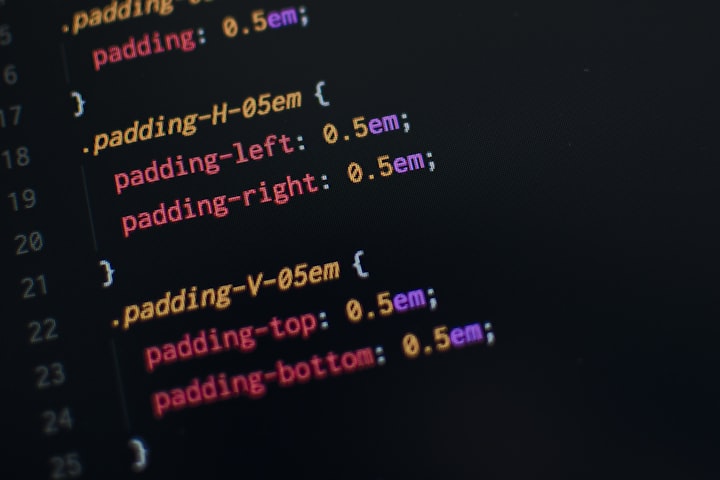Reconsidering The Earth
(reconsidering ourselves)

We are all micro versions of the macro Earth we live on.
We have lungs like trees that usher air in and out;
We have veins like rivers whose flow is life-giving;
We have thoughts like clouds that pass in the sky;
We have emotions like weather that moves over the land;
We have hair like grass that ripples when the wind blows;
We have tears like rain that water barren soil;
We have hearts that beat like the ocean;
We need sun and all the organisms that live on us and in us and around us in order to survive--
And yet we think we are so different, so detached, so independent from the Earth, which we are but small fractals of. We exist on a scale we don't quite understand, and if we did, could we handle it?
This is what we are struggling with now. Our detachment, our longing for connection, our sense of having wronged, our shame, our feelings of helplessness, our anger, our blame, our fear. But with any relationship, the worst part is the part before you reach out.
Maybe it's not about what we can stop doing, but what we can start doing. What if you truly believed that the Earth itself is a living organism? One which has needs and desires and a pulse? One which desires connection; connection that could be life-giving to a world that feels like giving up. A world that is crying out for help--like a friend you know who is wrapped in floods of grief, burning with rage, sick from exhaustion. Would you not try to comfort her?
An untended garden does not thrive. You can restrain yourself from throwing garbage into it, you can stop treading on the beds, or spilling poison into the soil; you can avoid doing it any harm, but still it may not flourish. It may not bear any fruit without your help.
Our biggest fault is thinking that we, as humans, are unnatural in some way and thus should refrain from interacting with the natural world so that it might right itself in our absence. But we are entirely natural. We are created by this Earth, on this Earth, and the part of evolution that led to us was no mistake that we have yet to atone for. We are nature running its course.
But it is a mistake to think that, as long as we have been on this Earth, that the best thing we could do would be to avoid making an imprint. Humans have co-existed with nature since the beginning of human history. The natural world and humans have been in constant dialogue. The evolution of plants, animals, land, water, people--and all the rest of it--is intricately linked.
Take, for instance, the Coronavirus. They are finding that, in terms of treatment, Western medicine alone is not proving to be as effective as a combination therapy that includes the use of Traditional Chinese Medicine. Simply because we have found new ways to do things, the old ways, which have been vetted through the survival of their usage and practice over time, are not something to be discarded now.
The phrase 'has withstood the test of time' can be used to describe the relationship between humans and plants. Interestingly enough they are finding that herbs, which have been used by Traditional Chinese Medicine practitioners for around 2,000 years to combat every major plague since the Han dynasty are proving to be the most effective treatment for COVID-19 when used in combination with Western medicine. For provinces using only Western medicine the recovery rate is, on average, 10 days slower, and the fatality rate is higher, than those provinces where treatment includes the use of herbs and TCM (Traditional Chinese Medicine).

We are here to evolve and grow and change, but this is a constant state of negotiation. When our inertia of change has propelled us to the point where we have forgotten ourselves and our past, life will ask us to look back and remember who we are and where we came from: how it was we got here.
It may be true that 'those who cannot remember the past are condemned to repeat it,' so what if, instead, we are able to incorporate into our growth those lessons and pieces of wisdom from the past that can help us to transform our future?
What if our task, in order to move forward, is a collective act of remembering?
Humans have always affected their environments. The question is how do we want to affect our environment now? As we can see with the treatment of Coronavirus, our environment, the Earth, is able to help us heal. One need not look at the effects of herbs on a virus to know this; instead remember the last time you bathed in the ocean and felt the salt water cleanse your body; or the last time you felt your muscles start to relax under the heat of the sun; the last time you drank a glass of water and felt yourself returning to a better state.
I believe that we can have that impact on our environment, too. Maybe the land, the plants, the trees, and the water where you live miss holding you, or having you caress your hands through them; or what if the tree by the river misses your back leaning against it? Maybe your garden needs tending, so that it can continue to flourish. When we prune away the dead flowers and branches, like barbers and surgeons, the plants are restored to a state of equilibrium and become ready for new growth. When we choose where to place certain plants, we paint the land.
When colonists arrived in America they thought they'd discovered an untouched paradise; however, they had, in fact, encountered a different style of agriculture than they were used to. Indigenous peoples have a different way of interacting with the Earth than dominant American culture does; look into it (we are on Indigenous land, after-all). All over the world there have been many different styles of agriculture practiced throughout human history.
Those that practice stewardship and reverence for the land, animals, and waters, first and foremost, have traditionally yielded the most reliable and sustainable abundance. This is because those who practice living in this way function as a part of their eco-system, rather than as something separate from it; they understand what the land needs and can provide and are, in-turn, understood by the land.
The alternative perspective is detached, demanding, and, ultimately, dishonorable, as there is no sense of give and take; instead there appears to be the underlying mentality that the land and the animals owe us some kind of debt.
There is honor, connection, and mutual healing to be had when we practice caring for the environment that sustains us. Rather than squeezing every last bit of nutrients from the Earth and hoarding one's stores of food, one can practice taking only what one needs; leaving abundance for others, and leaving the Earth to fallow and recover so that it can heal and give again.

People are, generally speaking, good natured. However, our culture in America has become so ill in terms of priorities, in terms of injustice, and simply in terms of leaving enough room for the human spirit to breathe--that even good-natured people feel helpless and lost now. It is understandable. But, I find, that what can help is having something to do.
So, in a manner not in accordance with mainstream culture, I ask you to sit in questioning. I ask you to not know the answer. I ask you to not ask me for it. I ask you to go out and do some research. I ask you to go outside and sit with the Earth and see if you can learn anything.
And if sitting isn't your thing, pick an activity; go for a hike, a swim, a walk in the park; sit in a garden, feel your toes in the grass, pick your own flowers or food (and give a gift of thanks), sit at the base of a tree, consume a vegetable, plant, or herb and ask--what am I experiencing? What does this remind me of? What surprises me, or doesn't? Do I feel different now than I did before? How so? What do I feel like doing in relationship to the Earth? What about this wild Earth makes me happy? And pursue that.
Be grateful for the land that you live on, the air you breathe, the water you drink, and the food you eat. Don't for a second let your guilt or your fear of life's bleakness stop you. You are alive and so is the Earth, so go find out what it means to live here and start practicing it in the best way you can.
It is time to catch up with our long-lost friend, the Earth.
References:
https://www.scmp.com/news/china/society/article/3051009/coronavirus-do-herbal-remedies-work-and-could-they-help-stricken
https://www.ncbi.nlm.nih.gov/pmc/articles/PMC6955127/
Recommended:
Deloria, V. (1999). For this land: Writings on religion in America. New York: Routledge.
Kimmerer, R. W. (2015). Braiding sweetgrass: Indigenous wisdom, scientific knowledge and the teachings of plants. Minneapolis: Milkweed Editions.
Sheldrake, R. (2018). Science and spiritual practices. London: Coronet






Comments
There are no comments for this story
Be the first to respond and start the conversation.